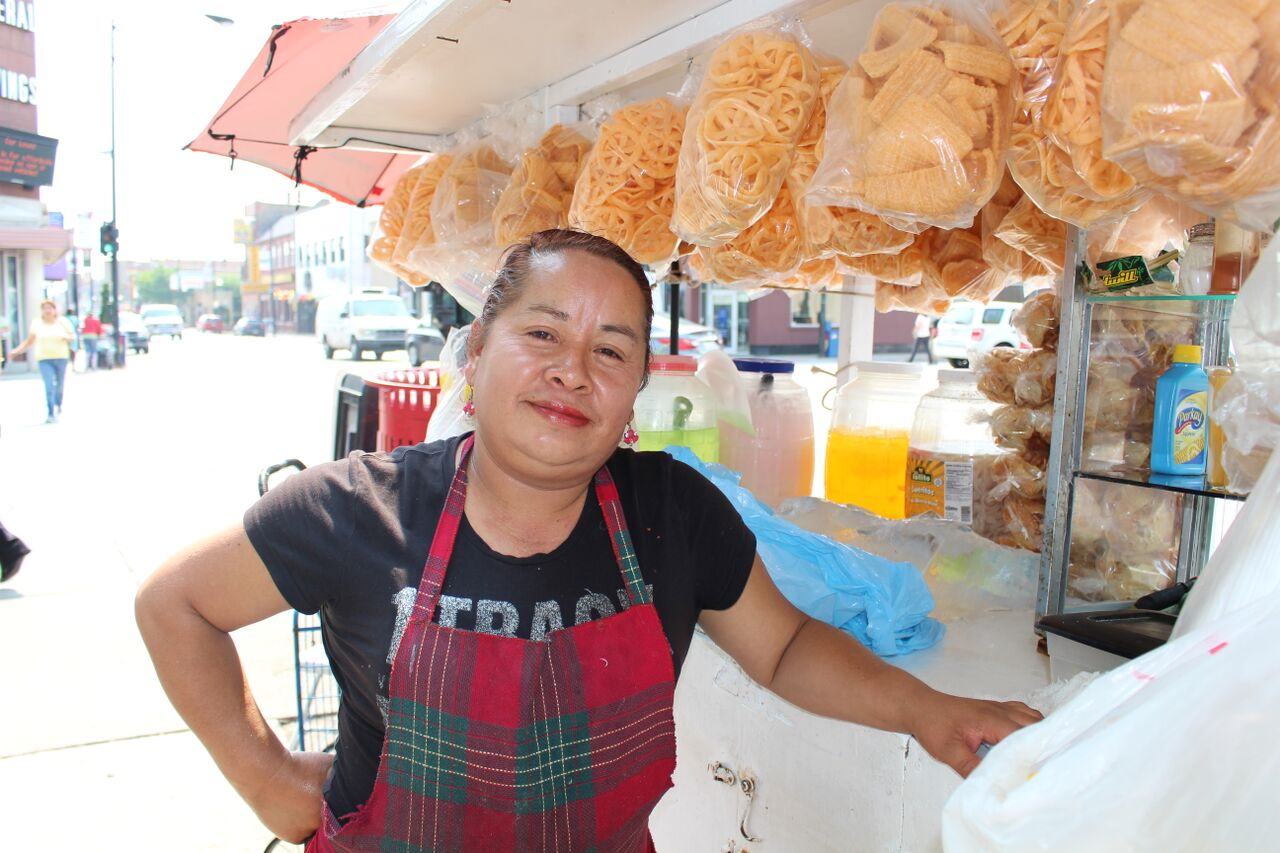Tamales y temor: The world of Chicago’s shadow chefs

*Study: “According to Institute analysis of survey data from nearly 200 of the estimated 1,500 food-cart street vendors across Chicago, food carts generate an estimated $35.2 million in annual sales, $16.7 million in annual income, 2,100 jobs and as many as 50,000 meals served per day. Food-cart street vending earnings support over 5,000 dependents.” VL
By Austin Berg, Illinois Policy Institute
“Every day, every year; summer, winter. These people don’t stop,” says Mario Gonzalez, flanked by hundreds of pallets of imported foods, stacked as high as the warehouse ceiling.
[pullquote][tweet_dis]Of the largest 25 cities in the U.S., Chicago is one of only two cities that do not allow food-cart street vending.[/tweet_dis][/pullquote]He’s the assistant manager at La Hacienda, a grocery wholesaler on Chicago’s southwest side.
“[Food-cart street vendors] aren’t a majority of our business, but I’ll say this: We open at 5 a.m. every day … they’re here before that, waiting. It makes me feel good that we can serve them.”
Two salespeople for La Hacienda are singing similar praises in a nearby parking lot. Sylvia Kestler mentions how they help poor people who have no intention of paying them back. Andrea Caballero says she remembers speaking to them since she was little.
Food-cart street vendors command respect in communities across Chicago – from those selling chicharrones and shaved ice in Little Village and Pilsen to the tamaleras in Albany Park.
But not in City Hall.
In Chicago, it’s illegal to sell prepared food out of a cart. Only whole, uncut fruit and frozen desserts are permitted. Sell anything else and you risk reprisal from law enforcement.
Click HERE to read the full story.
[Photo courtesy of Illinois Policy Institute]


